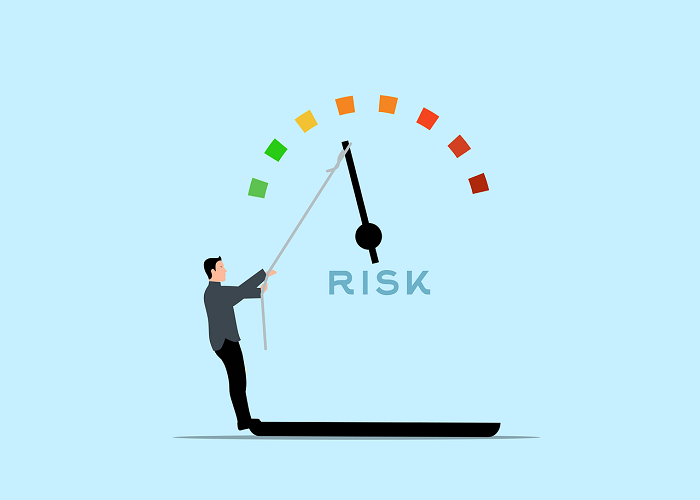Sustainability is rapidly becoming a cornerstone of business strategy worldwide, with Scotland leading the charge in embracing environmentally friendly practices. As consumers increasingly favour companies that prioritise sustainability, it’s clear that going green is no longer just an option — it’s a necessity for long-term growth. For Scottish businesses, the challenge lies in implementing sustainable practices without compromising profitability. In this article, we’ll explore how effective risk management plays a vital role in navigating these challenges, ensuring businesses stay resilient and continue to thrive in the face of sustainability demands.
The Role of Sustainable Practices in Business
Sustainable business practices focus on environmental responsibility, social impact, and governance (ESG). These practices aim to reduce carbon footprints, promote ethical labor, and ensure transparent governance. In Scotland, industries like manufacturing, construction, and energy are particularly impacted as they face growing pressure to adopt greener initiatives.
Sustainability isn’t just about ethics—it’s a strategic advantage. Companies that prioritize it enjoy better brand reputation, stronger customer loyalty, and improved regulatory compliance. However, implementing these practices comes with challenges. That’s where risk management plays a vital role, helping businesses navigate the complexities of sustainability while ensuring long-term profitability.
Key Challenges in Sustainable Business Transitions
Financial Costs
Sustainable operations often require significant upfront investment. Companies may need to purchase new technologies, adopt energy-efficient systems, or source eco-friendly materials, all of which can strain budgets.
Regulatory Requirements
As sustainability regulations evolve, businesses must stay compliant, which can be time-consuming and require continuous adaptation. Navigating these regulations without proper planning can lead to fines or disruptions.
Operational Disruptions
Implementing sustainability initiatives can disrupt day-to-day operations, from reworking supply chains to retraining staff. These changes can temporarily reduce productivity and affect profitability.
While these challenges are substantial, they are manageable with effective risk management strategies. By identifying risks early, businesses can develop plans to mitigate financial strain and reduce operational disruptions. A strategic approach to sustainability can balance short-term costs with long-term benefits, helping businesses future-proof their operations. Ultimately, when viewed through a risk management lens, sustainability becomes a driver for innovation and long-term growth.
How Risk Management Supports Sustainable Growth
Regulatory Risk Mitigation
Scotland’s evolving sustainability regulations—such as carbon reduction targets and renewable energy initiatives—can present challenges for businesses. Risk management helps companies stay ahead of these changes by continuously monitoring the regulatory landscape. This allows Scottish businesses to adjust their strategies promptly, avoiding potential fines and ensuring compliance with national and international standards.
Environmental Risk Management
In sectors like energy, construction, and manufacturing, environmental risks are particularly significant. Risk management enables companies to tackle issues such as carbon emissions, resource depletion, and waste management more effectively. By anticipating and addressing environmental risks, businesses can better align with Scotland’s push for a low-carbon economy.
Supply Chain Sustainability
For Scottish businesses, supply chain disruptions can arise when shifting to sustainable practices, such as sourcing locally or switching to eco-friendly materials. Risk management helps identify these vulnerabilities, ensuring that supply chain transitions are smooth and that sustainability doesn’t compromise efficiency.
Examples of Sustainable Success Through Risk Management
One notable example is Diageo, the global drinks company with operations across Scotland. Through robust risk management, Diageo was able to meet Scotland’s stringent environmental regulations by reducing water usage and carbon emissions in its distilleries. Their proactive approach not only ensured compliance but also improved operational efficiency, cutting energy costs and streamlining production processes.
Another example is Scottish Power, one of the UK’s largest energy providers. The company shifted to 100% renewable energy through meticulous risk management. By anticipating potential supply chain disruptions and regulatory shifts, Scottish Power ensured a smooth transition to greener energy sources, boosting customer loyalty and setting an industry standard for sustainability.
These businesses illustrate that by foreseeing potential challenges—whether regulatory or operational—risk management allowed them to mitigate disruptions and adapt efficiently. In both cases, their commitment to sustainability enhanced their reputations, secured long-term customer loyalty, and helped them achieve financial and environmental goals, proving that sustainability and profitability can go hand in hand with the right risk management approach.
Financial and Operational Benefits of Sustainability
Sustainable practices provide significant long-term financial benefits, such as cost savings through energy efficiency, waste reduction, and better resource management. By cutting down on energy use and minimizing waste, businesses not only lower expenses but also enhance their competitive edge in Scotland’s eco-conscious market.
A solid risk management framework enables companies to invest in sustainability confidently, ensuring financial stability while navigating potential challenges. It allows businesses to adopt renewable energy or sustainable supply chains without fear of operational or financial setbacks.
In the end, sustainability is key to future-proofing businesses. By managing risks effectively, companies can thrive in a green-focused market, secure customer loyalty, and ensure long-term profitability.
Conclusion
In summary, adopting sustainable business practices is no longer optional for long-term growth—it’s essential. However, the challenges that come with sustainability can be effectively managed through robust risk management strategies. For businesses in Scotland, integrating sustainability into their strategic planning will not only ensure profitability but also demonstrate a commitment to environmental responsibility.
To explore how risk management can support your sustainability efforts, visit Miaora CCRMS to discover tailored solutions that can help your business thrive while meeting eco-conscious goals.




